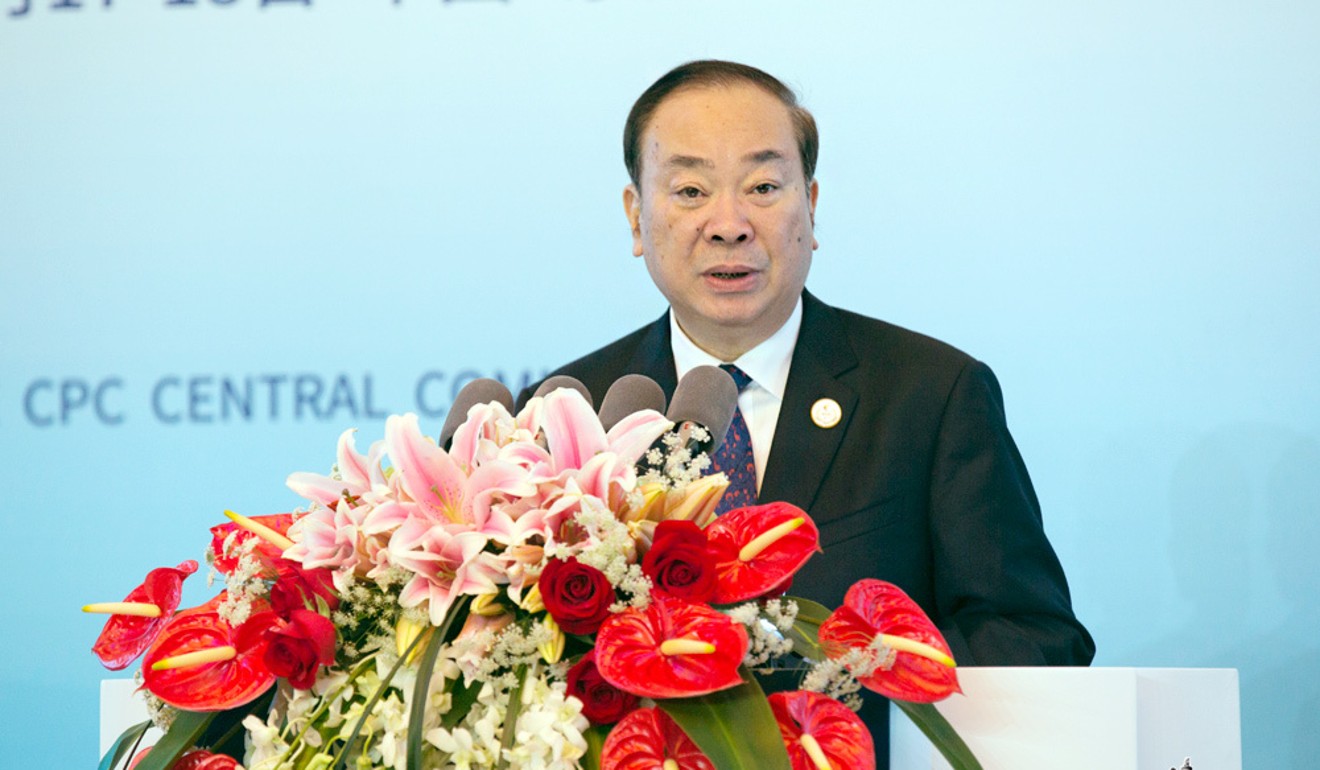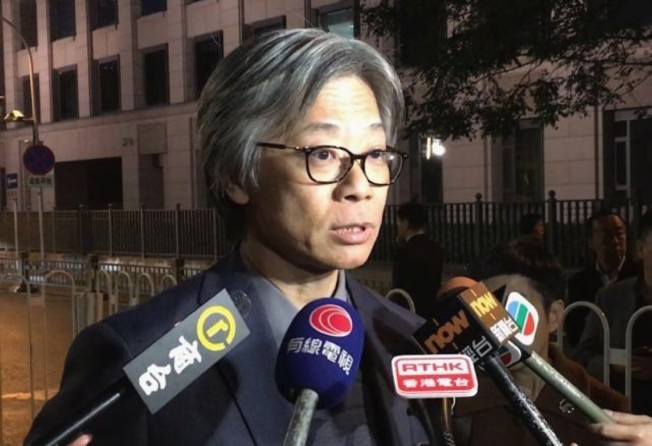
Don’t let Hong Kong be turned into base for interfering with mainland, Communist Party propaganda head tells media chiefs
Delegation comprising Hong Kong media senior management was in capital for three-day visit

The propaganda chief of China’s ruling Communist Party wants the Hong Kong press to “prevent external forces from turning the city into a base for interfering with the mainland”, the head of a senior media delegation to Beijing revealed on Tuesday.
The message was relayed by Sing Tao News Corporation executive director Siu Sai-wo, who led the group, in a late-night clarification after some local media reports on the subject were retracted.
The 20-member delegation, made up of senior management from the Hong Kong media, was on a three-day visit to the capital city for the 40th anniversary of China’s economic reform and opening up. In December 1978, China’s “open door” policy signposted a turning point in its economic management and trajectory.
The group met Huang Kunming and Xu Lin, head and deputy head of the Communist Party’s Central Propaganda Department, for more than one hour on Tuesday afternoon.

"[Huang] hoped Hong Kong media would not turn the city into a base for interfering in mainland politics,” Siu said when asked by Hong Kong media if a recent incident involving the Foreign Correspondents' Club (FCC) in the city had been mentioned at the meeting.
The quote was reported by three Hong Kong media outlets – two major television stations and one radio station. But the reports were later taken offline, and the quote was cut from the remaining footage.
Siu later clarified to the Post that the “exact quote from Huang” was: “Under the 'one country, two systems' [principle], [you] should prevent external forces from turning Hong Kong into a base for interfering with and destroying the mainland.”
He added that Huang was not commenting on any particular issue or incident in Hong Kong.
“After I finished the live interview, some people told me that the word 'base' was not mentioned at the meeting, although I remembered it was,” Siu said. “I was flurried … so I checked my notes again after dinner and asked a few chief editors [in the delegation] to confirm the right quote.”
He said he did not know that reports had been removed.
“But before we started the meeting, we were told that it was not for reporting,” he said.
Earlier this month, FCC vice-president British journalist Victor Mallet had his visa renewal application rejected by the Hong Kong government. The immigration authority declined to give a reason for the decision.
In August, Mallet had hosted a talk by Andy Chan Ho-tin, convenor of the Hong Kong National Party (HKNP), at an FCC event despite a warning from the commissioner of China's foreign ministry in Hong Kong. In September, the Hong Kong government imposed an unprecedented ban on the HKNP on the grounds of national security.
Wong Wing-hang, who chairs the Hong Kong News Executives Association, told the Post that officials from Beijing had told the delegation that the meeting was for “internal communication only” and was “not for reporting”.
When asked why the notification came only after Siu had met the media, Wong said: “I don't know. Maybe there was some delay in communication.” He added that the delegation members had “all agreed” to the arrangement.
According to Siu, Huang said at the meeting that he expected Hong Kong media to report more about the mainland to improve the younger generation’s knowledge.
Siu said Huang showed great confidence in the Greater Bay Area – Beijing’s plan to turn Hong Kong, Macau and nine cities in the neighbouring Guangdong province into a technology and innovation hub to rival Silicon Valley in the United States – and said it was a misunderstanding to suggest that Hong Kong was being “forced to integrate”.
Before returning to Hong Kong on Thursday, the group will also meet Zhang Xiaoming, director of the State Council’s Hong Kong and Macau Affairs Office.
Chris Yeung Kin-hing, chairman of the Hong Kong Journalists Association, said it was fine for mainland officials to expect Hong Kong media to report more about developments across the border, but the press should be free to report both the positive and negative aspects.
“What we saw in the past few years was that [Hong Kong] reporters were obstructed from reporting when they interviewed human rights lawyers [on the mainland],” he said.
In May, a Hong Kong video journalist was detained for hours after he was dragged into a van by police in Beijing while trying to cover a hearing involving a human rights lawyer. Four days earlier, another Hong Kong television reporter was beaten by two men in Sichuan while reporting on the 10th anniversary of a deadly earthquake.
The last time a delegation comprising senior management from Hong Kong media made a high-profile visit to Beijing was in April, 2014, when political controversy over electoral reform to realise universal suffrage in the 2016 Hong Kong chief executive election was turning white hot.